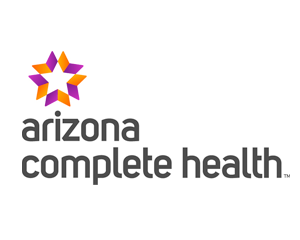Partnerships and community engagement improve public health for Arizona
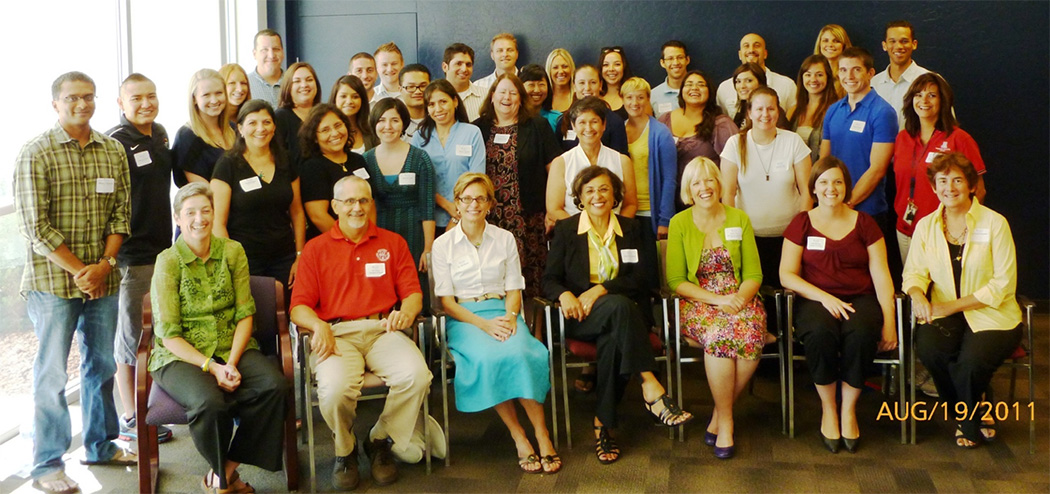
Public Health Phoenix Campus students, staff, and faculty in 2011
Highly Anticipated
When the University of Arizona’s Mel and Enid Zuckerman College of Public Health opened its Phoenix Campus (COPH Phoenix Campus) in August of 2010, the health services community in Arizona rejoiced. From health professionals at government agencies to community health workers to public health faculty, everyone knew this was a vital step forward. At last, there was a top-quality Master of Public Health (MPH) program that could serve students and health professionals in Phoenix and Maricopa County, home to more than 4.8 million Arizonans.
The Phoenix region is also home to the state government, the Arizona Department of Health Services, the Maricopa County Department of Public Health and other University of Arizona Health Sciences Colleges such as the College of Medicine – Phoenix, Pharmacy and Nursing, in addition to many hospitals and health services providers. The geographic proximity to all these agencies and institutions made the new COPH Phoenix Campus a perfect location for professionals in those agencies to partner with the College – the only accredited college of public health in Arizona – for training, research and service. This opportunity for collaboration has proved especially rewarding and effective.
Established through the leadership of the Dr. Iman Hakim, Dean of the Zuckerman College of Public Health, the new COPH Phoenix Campus found a home on the UArizona Phoenix Biomedical Campus that opened in 2007 in downtown Phoenix. In 2011, Dr. Cecilia Rosales, MD, MS, took on the challenge of building the Phoenix Campus programs as the new director of Phoenix Programs. Since then, Dr. Rosales’ outstanding leadership has guided a significant expansion of the COPH in Phoenix – building many community partnerships, expanding the number and expertise of faculty, and growing the degree programs and the student population. In 2016 the College created a fourth Division exclusively for Phoenix: the Division of Public Health Practice & Translational Research (DPHPTR), and Professor Rosales was appointed as Chair of the Division. That same year Dr. Rosales was also promoted to Associate Dean of the Phoenix Campus.
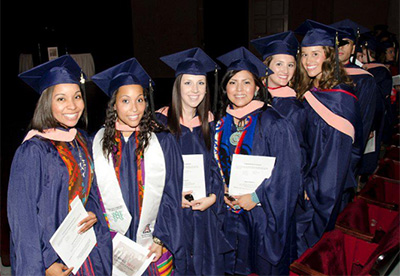
2012 Graduates from the Phoenix Campus MPH Program
“What we’ve accomplished in a single decade on the Phoenix Campus is really inspiring, and a big part of that is our relationships with all our partners, our community partners, our agency partners, and also the passion of our students and our faculty to help others, to improve health in our communities and along the border and border impact areas across the state of Arizona,” says Dr. Rosales, “This is all about working together to make a better world, a healthier world. I’m so proud of what we have achieved and what we continue to do to improve the quality of life in so many underserved communities.”
Programs on the COPH Phoenix Campus have grown rapidly over the past decade, and the Campus now offers MPH degree concentrations in Health Services Administration, Public Health Practice, and MD/MPH Clinical Leadership, alongside a track in Public Health Practice within the online undergraduate public health program, and a Certificate in Health Administration. In the very beginning, the Phoenix Campus employed a single staff member. Now it has grown to include 37 staff and faculty members. Student enrollment also continues to grow. The first MPH class included 13 students, and now there are 30 students on average for each MPH cohort, with 229 alumni who have graduated from the Phoenix Campus programs!
Research has also been an important part of the Phoenix Campus’ mission, and with so many key partners to help, the Phoenix Campus has been awarded upwards of $5 million in state and federal grants for research and programs. Many of those funds go directly into programs that benefit families and children and communities. Alongside the programs, the research studies translate into better health practices that improve health outcomes and provide many opportunities for collaboration, a significant contribution to Arizona. In 2015 the College of Public Health provided additional resource for research collaboration with the College of Medicine Phoenix – the Biostatistics and Study Design Service. The Service, guided by Dr Chengcheng Hu and his staff (Janet Foote, PhD and Paul Kang, MPH) provides critical analytic support for College of Medicine Phoenix faculty and the medical student research and scholarly projects.
The launch and growth of the COPH Phoenix Campus would not have been possible without an initial partnership with Arizona Area Health Education Centers that funded programs to engage high school students around the state with careers in health services, including public health. That funding, provided until 2016, reached new students and helped the Phoenix Campus programs grow. Since then, so many other vital partnerships have expanded the reach and impact of the college across agencies, health providers, and community health organizations. Truly, the growth of the COPH Phoenix Campus has been a collaborative enterprise, an example of people and organizations coming together for the benefit of all Arizonans.
A Focus on Community Connection
To compliment the classroom experience, the Phoenix Campus/Division of Public Health Practice & Translational Research emphasizes community engagement for students in all degree programs. Faculty and students have provided public health services to the community via service-learning courses, grant collaboration, community education, volunteer donation drives, the MEZCOPH Primary Prevention Mobile Health Unit, and Street Medicine Phoenix.
Outreach and service provide tangible benefits to the community, and at the same time both students and faculty gain increased awareness of health challenges in those communities and how they can apply their knowledge to address those challenges most effectively. In addition to community programs, MPH students from the Phoenix Campus have served over 75 different agencies and organizations around the state as interns, producing deliverables and serving the community.
The Primary Prevention Mobile Health Unit
A stand-out example of community engagement that has delivered health benefits to thousands of people, the Primary Prevention Mobile Health Unit (MHU) program, was launched by the Phoenix Campus in 2016. The MHU program has since expanded to Pima County and beyond. Today, the program has 11 Mobile Health Units in Tucson, Phoenix, Chicago, Dallas, Denver, Las Vegas, Los Angeles, Miami, New York, Orlando and Raleigh. Dr. Rosales, director of the program in Arizona, works with a team of interprofessional students and faculty members from the UA Health Sciences in Phoenix and Tucson to provide outreach services.
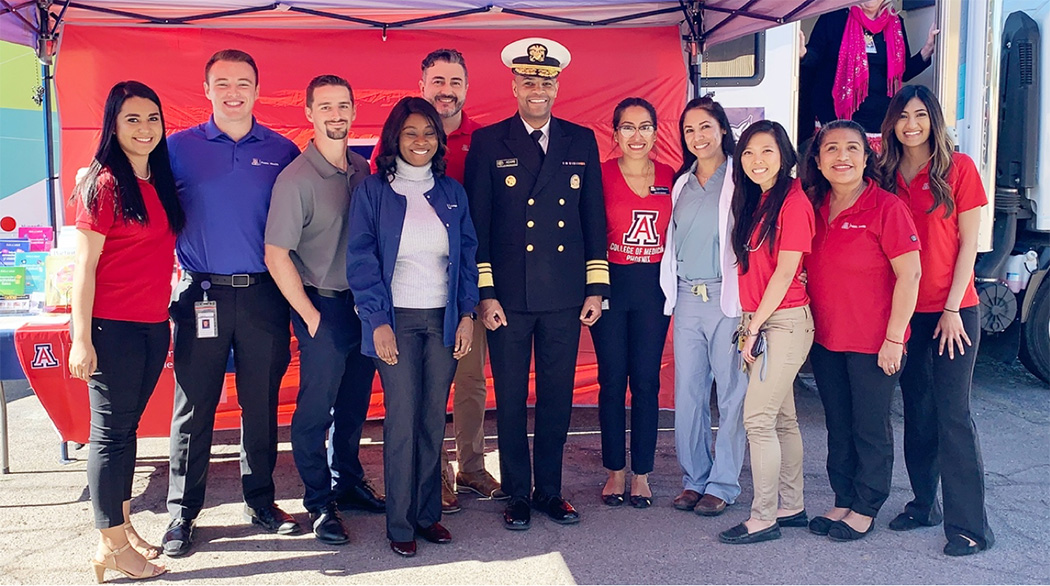
Jerome M. Adams, MD, MPH, 20th Surgeon General of the United States, visits with the Mobile Health Units team in 2019
A service project that consists of a Mobile Unit “clinic-on-wheels” truck, the MHU team goes out into underserved communities to provide basic health screenings such as: height/weight measurements, BMI, glucose testing, A1C, blood pressure, cholesterol testing, telemedicine, and referrals to assistance within the community. The MHU program also provides inter-professional training opportunities for health sciences students, research opportunities for faculty from our college and other academic partners such as Mayo, ASU, and service learning.
Center for Tobacco Cessation and Arizona Smokers’ Helpline (ASHLine)
In November 2018, the newly formed Center for Tobacco Cessation established its home on the Phoenix Campus. With funding provided by the Arizona Department of Health Services and the Centers for Disease Control and Prevention, the Center supports a Training Institute to provide tobacco cessation education statewide to local health departments, health care systems, and community partners. The state funded tobacco quitline, ASHLine, that was established over 20 years ago at the University, also falls under the Center and supports the tobacco cessation needs of Arizona. Under the leadership of Mark Martz, Director and Assistant Professor of Practice, the Center continues to help all Arizonan’s quit smoking and lead healthier lives!
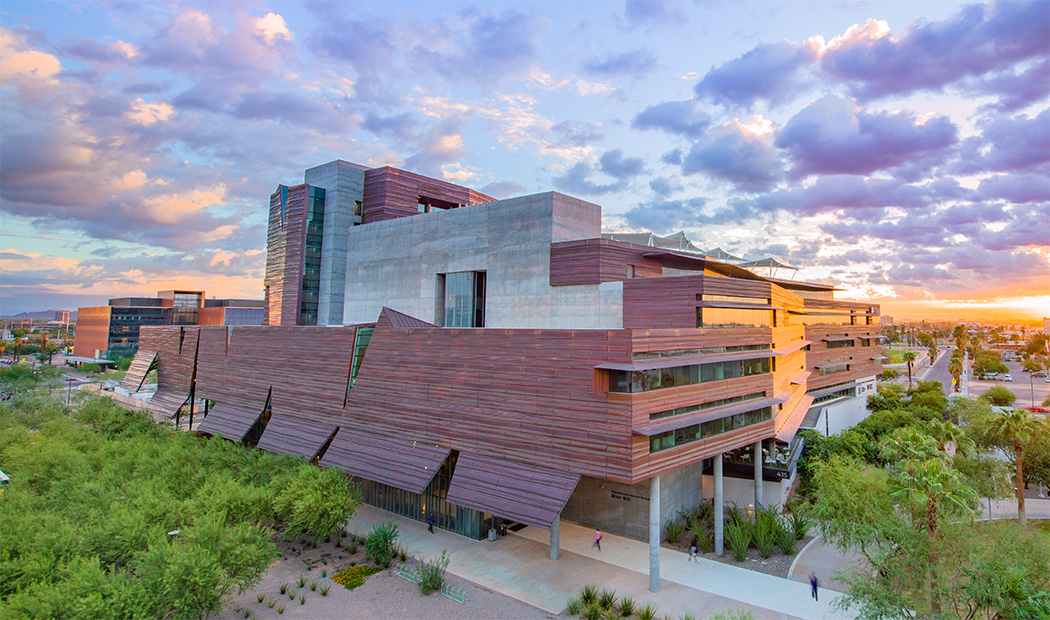
Phoenix Biomedical Campus
Applied Health Policy Institute
The Applied Health Policy Institute (AHPI) connects the university with real-world policy and politics through four primary activities: Education, Research, Expertise, and Connection. All of those activities also connect back to leadership, teaching the ability to engage constituents, promote a vision, and implement positive policies to make change that helps people.
On the education front, classes and internships teach students about specific policy topics, as well as how to how to engage in policy and advocacy generally. For research, AHPI’s experts study health-related laws and policies and produce both academic papers and practical resources. That research results in expertise that enables us to transform public health science and ideas into concrete policy options. And finally, connection makes it all happen. AHPI faculty and staff work closely with external partners and connect students, experts, and community members with one another. For example, students in our “Case Studies in State Health Policy” class work on real policy projects for a nonprofit or agency of their choice.
International Reach
Above and beyond engagement with communities in Arizona, faculty and students from the Phoenix Campus also support many programs and initiatives that connect with communities along the US/Mexico border, and the Campus offers degrees to international students. The MPH degree in Health Services Administration (HSA) is offered through two international UArizona “micro-campuses,” one in Puebla, Mexico at the Universidad Popular Autonoma del Estado de Puebla (UPAEP), and the other in Amjan, United Arab Emirates at Gulf Medical University (GMU). Through the visionary leadership of Dr. Cecilia Rosales, the Phoenix Campus has forged strong partnerships with the Arizona Mexico Commission Health Services Committee and the US Mexico Border Health Commission (USMBHC); serving as a member of the USMBHC for 10 years representing Arizona.
Partnerships That Drive Change
The cornerstone of the Phoenix Campus’ success has been partnerships, in the public sector, the private sector, with community non-profits and insurance providers. We value each and every partnership, and together they enable us to grow healthier communities around the state. We thank each and every one of our partners: Blue Cross Blue Shield, Arizona Complete Health, Arizona Department of Health Services, Maricopa County Department of Public Health, Pinal County Health Department, Yuma County Health Department, Wesley & Goldengate Community Health Centers, Adelante Healthcare, El Rio Community Health Center, Sunlife Community Health Center, Chicanos Por la Causa, Phoenix Children’s Hospital, local area Health Education Centers, the Arizona Telemedicine Program, the Mexico Section of the US Mexico Border Health Commission, and the Arizona Mexico Commission-Health Services Committee which Dr. Rosales Co-Chairs with Dr. Cara Christ, ADHS Director.
Leadership in the Fight Against COVID-19
When the COVID-19 pandemic hit Arizona, the COPH Phoenix Campus showed exemplary leadership to provide expertise and coordination in support of agencies, healthcare providers, and communities. They established the COVID-19 Task Force on the UArizona’s Phoenix Biomedical Campus to guide students, staff, and faculty. At the same time, the Mobile Health Units immediately went into action, providing guidance to both health and support services in Spanish-language communities. Soon the Phoenix Campus was working with Maricopa County Health Department, Yuma County, and the Gila River Tribal Community to provide training for contact tracing, and contact tracing services. They also convened a bimonthly COVID19 Task Force in collaboration with the Arizona Mexico Commission Health Services Committee to coordinate COVID-19 response among all the US/Mexico border counties in Arizona and counterparts in Mexico, a coordination effort that made a real difference in pandemic response along the border.
So Much to Celebrate and Looking Ahead
In just 20 short years, the Zuckerman College of Public Health Phoenix Campus has expanded the reach of public health across Arizona. Through partnerships, they bring agency professionals and community organizations together with research faculty and students. They build programs and policies that improve health and wellness for millions of Arizonans. We are so proud of all that Dr. Rosales and her team at the Phoenix Campus has created. The COVID-19 pandemic has shown everyone the fundamental importance of public health, and inspired many to join the fight for better health services and care in our state. As the COPH Phoenix Campus continues to lead the effort to build better public health in Arizona and beyond, we look forward to another decade of success, and a healthier Arizona.


